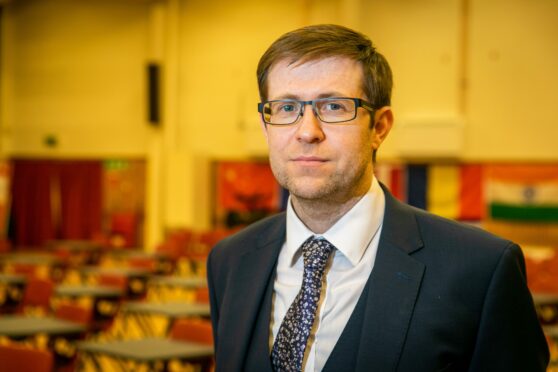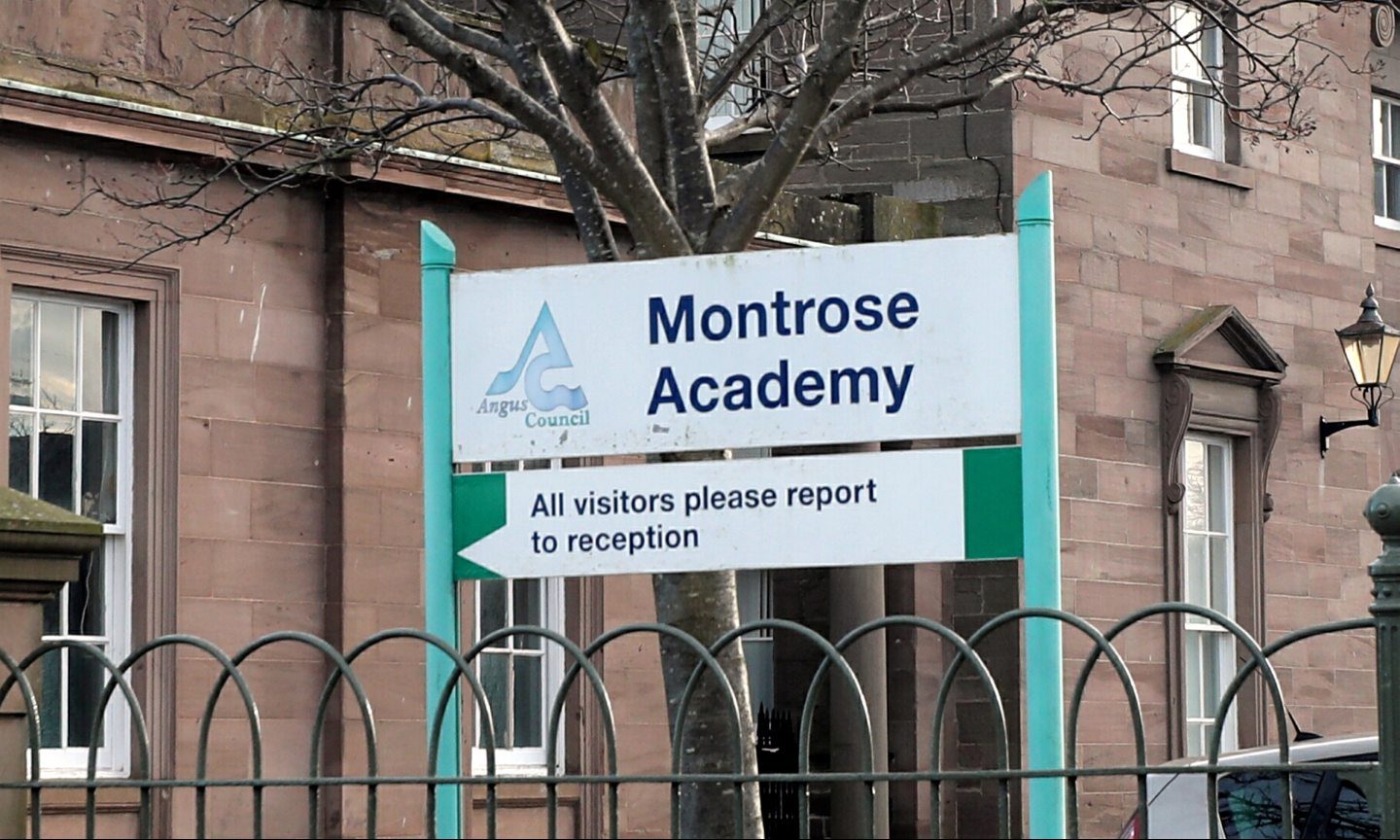Fife classmates of a “very violent” child had to evacuate regularly as the pupil went two years without the necessary help, according to the class teacher.
The boy threatened others with scissors and traumatised his classmates.
He was cited as an example of the impact on whole classes of children when additional support needs go unmet – as, say teaching unions, is happening far too often.
The boy’s case emerged as unions demanded action on what they say is the “national scandal” of inadequate additional support needs (ASN) provision.
We heard from the boy’s teacher, who wished to remain anonymous.
They said the boy’s behaviours included “things like tipping chairs and tables, threatening people with scissors and worse.
“He would abscond and put himself in danger.
“He needed help; he was from a very difficult background and had additional support needs.”
Classmates ‘didn’t feel safe’
“The rest of the class also needed help: many of them had their own additional support needs and some were only primary one.
“Eventually, I was signed off with stress.
“It was an open plan classroom, which meant not only my class had to be evacuated regularly, so did other classrooms.
“Those pupils experienced trauma and didn’t feel safe.
“It took two years to get the pupil the support he needed.”
Another primary school teacher described taking courses in their own time to learn how to support ASN pupils in their Fife classroom.
However, they then discovered they lacked the resources to put their new skills into practice.
Buying own resources ‘the norm’ for teachers
The teacher said: “I know what I need to do, and it is heart-breaking and soul-destroying when we don’t have the resources required to support our learners.
“Oftentimes I end up buying resources myself. Why? Because I care and I want to see my learners succeed. And this is the norm for a lot of teachers.”
Almost half of Fife’s secondary school pupils (47.5%) and a quarter of primary school pupils (24.3%) have ASNs.
Scotland-wide more than a third of all pupils (36.7%) have ASNs.
ASNs can range from physical and learning disabilities to bereavement and family breakdown.
The level of support for ASN pupils has reached crisis point, according to the EIS union’s Fife branch.
Its members argue there are too few pupil support assistants.
‘Unmet ASNs can lead to Fife classroom violence’
Publicity officer Graeme Keir, a teacher in a Glenrothes secondary school, said the situation in Fife reflects the nationwide picture.
“Often it’s a struggle to find enough PSAs to give pupils the support they are entitled to in exams, never mind day-to-day classes.
“We’ve heard about the frustration the lack of support causes pupils, which can erupt in aggression and violence.
“For teachers, it often ends in stress, burnout, and often teachers leaving the classroom.”
He fears this will become worse as education spending is cut – although Fife Council insisted there had been no cut to its additional support for learning (ASL) budget.
He said: “The situation has reached crisis levels because of continued cuts and rocketing need.”
Fife Council: no budget reduction
Fife Council education manager Deborah Davidson said: “There has been no reduction in the ASL budget.
“All schools receive an allocation of time, worked out in hours, for pupil support assistants (PSAs).
“We work with school leadership teams to identify how this time is allocated to meet the needs of children and young people. This is done in a fair, equitable and transparent way across our schools.”
All secondary schools have their own Department of Additional Support for those requiring more intensive support, she said.
Schools have data on those pupils with recorded ASNs, she said, which they can use to target support.
“We continually review approaches to meet the varying needs of those children and young people with an additional need.
‘We understand challenges schools face’
“Over the last year we have increased outreach support from our Fife-wide services to support building capacity in schools and upskill staff and have worked with the NHS to pilot a more streamlined process so that families receive a diagnosis of autism faster.
“We have also delivered quality professional learning, in response to feedback from schools and practitioners.
“However, we understand the challenges being faced in schools and continue to identify further work that can take place in order to respond to the needs of our schools, staff and pupils.”
Eleven school staff unions and parent bodies have joined forces to call for action.
They have urged the Scottish Government and education authorities to provide enough staff and resources to properly support all ASN pupils.
ASN provision is ‘national scandal’
EIS general secretary Andrea Bradley said: “The under-funding and under-resourcing of ASN provision is a national scandal which must be addressed as a matter of urgency.”
She said the Scottish Government and local authorities must invest much more in ASN provision.
A Scottish Government spokesperson said: “While it is for local councils to determine the most appropriate educational provision, the Scottish Government is committed to improving outcomes for young people with additional support needs.
“Spending on additional support for learning reached a record high of £926 million in the latest available figures [2022-23] to help address growing demand in this area.
“Through our continued investment of £15 million per year, the number of FTE additional pupils support staff has also increased by 725 (4.4%), bringing the total number of support staff in Scotland in 2023 to 17,330.”












Conversation